
Undoubtedly, Chandra Bose is one of India's most fascinating men. Many Indians view him as 'The Father of Modern India' and rightfully believe that without him India would have been under the heel of colonization for much longer. Bose had that rare charisma, people saw and felt in him a man who loved his country and his people before even himself.
Shah Nawaz Khan, a Captain in Bose's Indian National Army, had this to say:
'It will not be wrong to say that I was hypnotized by his personality and his speeches.
He placed the true picture of India before us and for the first time in my life I saw India, through the eyes of an Indian.'
While Ghandi and others were back in India talking about peaceful protest Bose was raising armies. On July 4, (American Independence Day) of 1944 Bose spoke before members of the Indian National Army and fellow Indians in Burma. He promised them:
'Give me blood, and I shall give you freedom!'
After raising an army in Germany, the Azad Hind, he secretly traveled by German and Japanese submarines to South East Asia. Once there, and with the help of his Japanese comrades, he raised the Indian National Army. Terrible battles awaited Bose and his brave volunteers. At Imphal, one of Britain's self-confessed bloodiest battles of WWII, Bose and his Japanese comrades suffered 55,000 casualties. Britain's Indian troops, unfortunately fighting for their colonialist master, suffered over 12,000 casualties. Many Japanese are still buried there in unmarked mass graves, giving their young lives to free India. Many of them were not beaten in combat, but horrifically they starved to death and were stricken with dysentery and malaria.
December 20, 2019
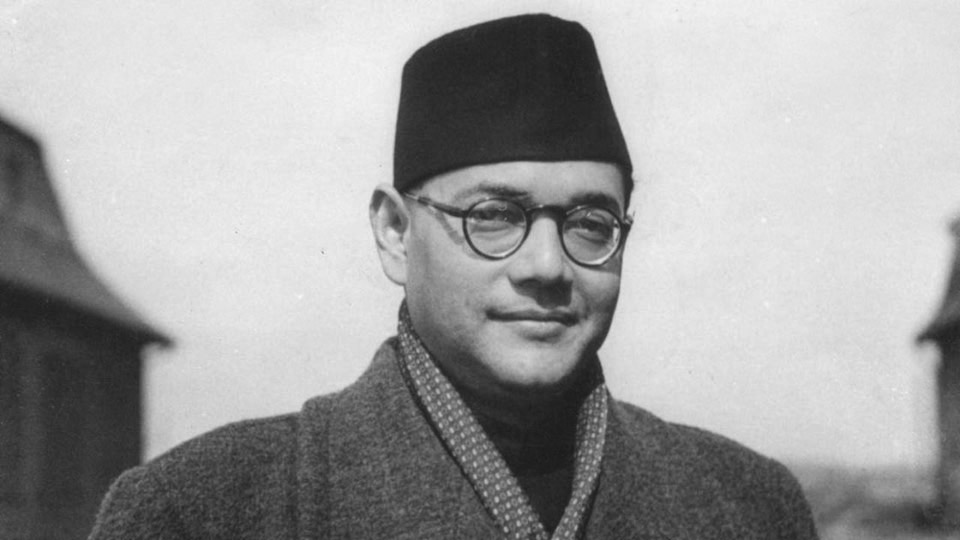
[Mourning the Ancient] First off, many Americans have no idea who Chandra Bose even is. I find it odd that someone of such great impact in world history would be omitted from the curriculum of our schools, but such is the case. Instead of giving a short biography of Chandra Bose, can you tell the readers who Bose is to you--what he means to you personally?
[SKN-RG] Subhas Chandra Bose remained an uncompromising character who had never been attached to any particular political theory. One word to define him would be a socialist who wanted to free Asia from foreign rule. His military intelligence remained active even after the war and his compatriots helped in building up our nation which slowly emerged out of the British Commonwealth's dominating policies.
[Mourning the Ancient] Chandra Bose was certainly a very enigmatic figure. In my opinion, it has never really been conclusively proven whether or not he died in the plane crash in Taiwan on August 18, 1945. There have been numerous investigations into his death, including several by the Indian government. The Indian government's findings were that Bose had died in the plane crash, but many Indians do not believe this, including yourself, correct? Can you please explain to us what you think happened?
[SKN-RG] Bose remained covertly active and his intelligence network helped in many anti-imperialistic war fronts after WWII. When you are not authorized to show further evidence, the best way to put your thoughts is to say, 'It's my belief!' So be it it's my belief! The Justice Mukherjee Commission of Inquiry set by the Indian government concluded that Bose didn't die in the plane crash and he traveled towards Manchuria. However, the Indian government later on rejected the Commission's findings without proper explanation.
[Mourning the Ancient] Why does the Indian Government cover-up what happened? What do they have to gain? I understand that many files, now over sixty years old, are still 'top secret'. Any guess at what these files contain?
[SKN-RG] It doesn't concern merely India. Many intelligence agencies who had spread their spy networks across the world had certainly come across Bose's men after the war. His post war involvements may lead to such information that can violate diplomatic relations of different countries.
[Mourning the Ancient] Bose's death is a hot issue in India. Many Indians are angered when confronted with someone with the opinion that Bose didn't die in the plane crash. They feel that it somehow dishonors Chandra Bose to say he didn't die. Any thoughts on this?
[SKN-RG] Bose's family thinks that if he returned, he would have contacted them. This is very unlikely for someone who has to remain incognito. Bhagwanji, the holy man who secretly lived in India and whom many believe to be Bose in hiding, specifically mentioned about his objectives to his close circle. The only definite proof about him is the matching of his handwriting with known writings of Subhas Chandra Bose, verified by a reputed hand writing expert, Dr. Banshi Lal Kapoor, during the time of the Justice Mukherjee Commission.
[Mourning the Ancient] I first learned of Subhas Chandra Bose from a book by Savitri Devi. It is said that she introduced Bose to representatives of the Japanese Empire. Her husband, Asit Krishna Mukherji, was the editor of the pro-Axis newspaper New Mercury. Do you know anything about these people and their significance to Chandra Bose's work?
[SKN-RG} I don't know about it but I think links can very well be even through Miguel Serrano. It will be of great help if you can provide those books, please.
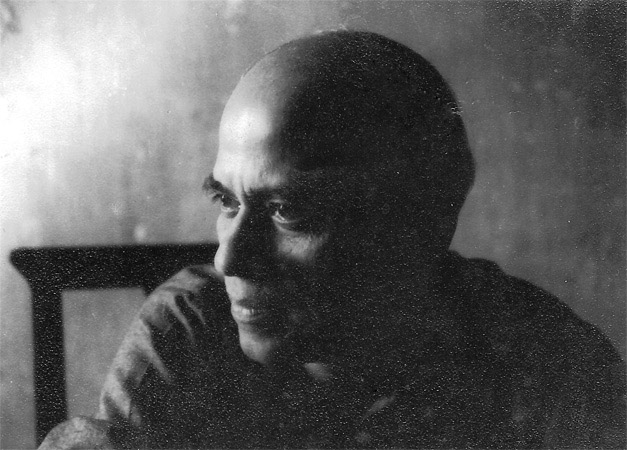
[Above: Asit Krishna Mukherji]
[Mourning the Ancient] Every account I've read from people who have met Bose has been a very positive one. They spoke of his magnetic charisma, his iron determination and the sincerity of his heart. He was one of those rare leaders the world longs for. How different do you think India would be today if Bose had been victorious in his campaign to free India? Do you think Bose could have been the leader of India?
[SKN-RG] In that case India's partition would not have happened. The country would have been out of British Commonwealth and in a far better state.
[Mourning the Ancient] I think it is a shining example of Bose's ability to take charge and his mysterious charisma that he was able to obtain such tremendous support from both Germany and Japan. They seemed to truly believe in him and it was, in my opinion, beyond just 'the enemy of my enemy is my friend' scenario. Sure the Germans and the Japanese knew that if India was removed from the British arsenal it would be a huge blow to their power, but they also seemed to have a deep respect for Bose and India itself. What are your thoughts?
[SKN-RG] Hitler respected him so much that he formed the Indian Legion to fight beside his SS. Even the Germans had the 0Springing Tiger emblem along with the SS. When Bose was leading the war in Japan, Hitler expressed his satisfaction for Bose in the dying months of war. (Source: Australian archive file) Even Stalin's apparatus had been much supportive to him as he slipped to Russian occupied territories in August 1945. His charisma is well documented in files.
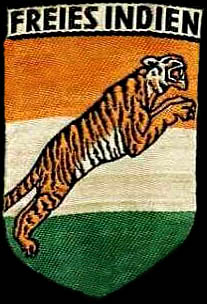
[Above: The patch of the Azad Hind]
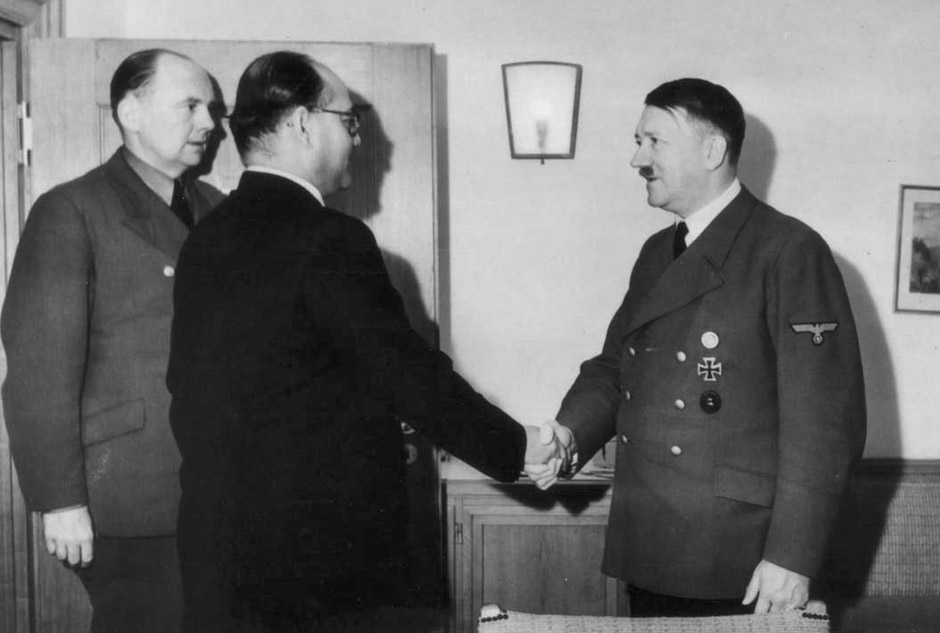
[Above: Adolf Hitler and Bose]
[Mourning the Ancient] I find it deeply unfortunate that when the INA actually reached Indian soil with their Japanese comrades, intent on liberating India from British occupation, that Indian units were used against the INA forces. I've read that there were defections on both sides, but I'm not aware of any substantial defections to the INA during this time (The battle of Imphal, etc.). In your view, why didn't Indians switch sides en masse to support the INA and the liberation of India, especially when they actually arrived on Indian soil?
[SKN-RG] The Royal Navy's mutiny is direct evidence of Indians in the British Army who became supportive of the INA. It had been one of the primary reasons of the British to leave India. Bose's intelligence network had been planning since 1944.
[Mourning the Ancient] I know what happened on the battlefield when INA forces reached Indian soil (the insanely deadly Battle of Imphal), but I'm curious if you know what happened with the civilian population of India? Were they informed that the INA was fighting British forces? Were there any uprisings?
[SKN-RG] They were misinformed by the British who planted Communists who ran a propaganda program against Subhas Chandra Bose and the INA, but it utterly failed.
[Mourning the Ancient] From what I understand, many Indians compare Bose to America's George Washington. How important do you think Chandra Bose and his INA were to India's independence in 1947?
[SKN-RG] Clement Attlee confirmed that it was not Gandhi but Bose's activities that were the primary reason India obtained its freedom. It was nearly impossible for the British to run their Army and administration with the 'natives' here in India.
[Mourning the Ancient] Unlike Gandhi, Bose believed that India could only be freed through arms. Gandhi himself said:
'Netaji will remain immortal for all time to come for his service to India.
The hypnotism of the Indian National Army has cast its spell upon us.
Netaji's name is one to conjure with. His patriotism is second to none...
His bravery shines through all his actions.
He aimed high and failed. But who has not failed?'
But, in my opinion, Bose did not fail. He was victorious on a much more important battlefield: the people's hearts. However, some Indians seem to hold it against Bose that he joined with the Germans and the Japanese. What is the predominant view in India today? Are attitudes regarding Bose changing with the younger generation?
[SKN-RG] India is a country with unity in diversity. So there are different thoughts but overall people view him as a youth icon and the young generation is enthusiastic to know about the liberator of India.
[Mourning the Ancient] Another mystery in Bose's life is his wife, Austrian-born Emilie Schenkl, who was also mother to his daughter. There is some doubt that they were even married. What are your personal thoughts on this?
[SKN-RG] I have come across a Dutch intelligence file where the Chief at Delhi reported to his Ministry that Bose was unmarried. There had never been a single shred of evidence provided as proof of marriage. The Netaji Research Bureau which was run with the Indian government's aid, produced three different dates of Bose's marriage. A.C. Nambiar who himself had been a controversial character was the sole proprietor of the marriage theory in 1946. Unfortunately, presently Bose's family members theorize the marriage and get irritated when questioned and even have some emotional outbursts.
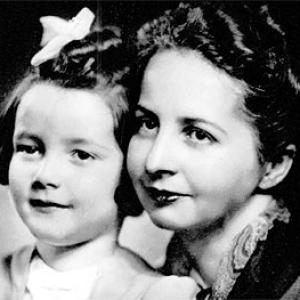
[Above: Bose's wife and daughter?]
[Mourning the Ancient] There was an Indian women's regiment formed by Bose. We were wondering if you know who trained them, the Germans, Japanese or both? The IHR (www.ihr.org/) essay on this topic suggests that it was the Germans, but can you give us any affirmation of that?
[SKN-RG] One of my friends is writing a book on this topic. I don't have many ideas on it. But I'm eagerly waiting for his book.
[Mourning the Ancient] The amount of advertising using Chandra Bose's image is fascinating. From shops and cafes, to matchbooks, locks, postal materials and even children's costumes! It seems that Bose is a very popular figure, but how much does the average Indian really know about him, the German Waffen-SS 'Azad Hind' and the Indian National Army (INA)? When did you personally decide to research him? I mean, what got you interested in him?
[SKN-RG] Mainly the mystery surrounding his fate got me interested, but now I feel that unless you know the history you will miss out. Such as the names connecting him in his secluded afterlife. Bhagwanji [religious name], Bose in his afterlife, had many of his compatriots connected till his so-called death in 1985.
Back to Interviews







